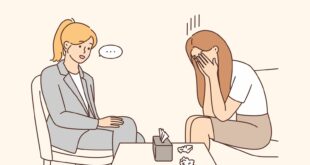It sounds like an imaginary malady in a soap opera, doesn’t it? But this stress-induced cardiomyopathy is a very real condition. First described in the 1990’s by Japanese physicians, it is also called takotsubo cardiomyopathy. A takotsubo pot is a fishing pot used to trap an octopus and has a shape similar to the heart’s left ventricle.
Causes:
Intense emotional or physical stress can cause this rapid and severe weakness of the heart muscle (cardiomyopathy). This condition occurs suddenly and unexpectedly, and it resolves fairly quickly. Sometimes the cause is never known. It can be triggered by a major life event (such as the death of a loved one or a divorce), extreme fear or anger, or sudden surprise. Since the syndrome is not completely understood, researchers believe there may be a surge of stress hormones causing the function of the left ventricle to fail. The heart cells are “stunned” but not killed. It can occur in women and men, but it primarily occurs in older women (average age 60).
Signs and Symptoms:
Symptoms are similar to a heart attack (chest pain, shortness of breath, pain in the arm or back). The distinguishing difference is that there will be no blockages in the coronary arteries. Symptoms may begin within minutes to hours of the stressful trigger.
Diagnosis:
Given the fact that this presents itself in much the way a heart attack does, it can be ruled out or verified with cardiac tests: EKG (measure the heart’s rhythm and electrical activity), blood tests (cardiac enzymes), echocardiogram (ultrasound of the heart), and angiogram or cardiac catheterization (check the blood vessels for blockages).
Treatment:
If you have any symptoms that may be indicative of a heart attack, call 911 immediately. The hospital will have the necessary equipment and personnel to make a proper diagnosis.
If they find that the heart’s left ventricle has the characteristic shape and there are no blockages in the blood vessels of the heart, they will make the diagnosis of Broken Heart Syndrome. The treatment is usually allowing a period of time for recovery and administering the proper cardiac medications that will help reduce stress on the heart.
Prognosis:
Most recover within a few days to a couple of months. Barring any unforeseen complications, there is typically a complete recovery since there is no permanent damage to the heart muscle.
“The LORD is my strength and my shield; my heart trusted in him, and I am helped: therefore my heart greatly rejoiceth; and with my song will I praise him.” (Psalm 28:7 / KJV)
As important as it is to take care of your physical heart, it is even more crucial to secure your everlasting spiritual heart. If you don’t yet know Jesus as your Saviour and Lord, may I introduce you to Him today?
Accepting His gift of salvation is the only “heart” medicine your spirit ever needs.
Prognosis: Eternally excellent!
How are you taking care of your spiritual heart?
 The Bottom Line, Ministries Christian News, Articles, & Poetry
The Bottom Line, Ministries Christian News, Articles, & Poetry 




